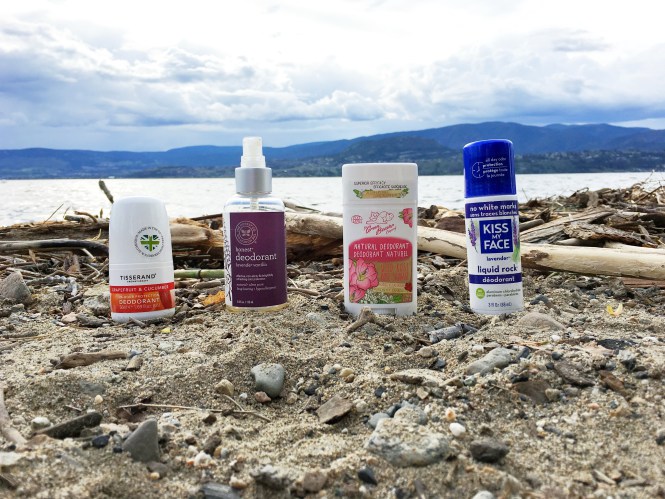Most antiperspirants contain aluminum compounds which have been linked to annoying conditions such as sweat stains and to more severe health hazards such as breast cancer and Alzheimer’s. Although there is no conclusive evidence yet connecting deodorant use to cancer and Alzheimer’s, many experts claim there is a link to long term use of deodorant. In order to be on the safe side, it is better to use deodorants that do not contain aluminum compounds or other toxic ingredients. Organic antiperspirants and deodorants are a great place to start.
Use Organic Deodorants and Avoid These Dangerous Ingredients
Most deodorants on store shelves contain chemicals that may be dangerous to human health. Marisa Belger discusses the top five ingredients to avoid in the MSNBC October 17 2007 article “Want a fresh, green deodorant? Don’t sweat it!” She lists parabens, aluminum, triclosan, propelyn glycol, and talc as the worst offenders in non organic deodorants. Parabens are preservatives linked to breast cancer. Triclosan is thought to be a carcinogenic, while propelyn glycol may cause kidney or liver damage. Talc is sometimes contaminated with asbestos. As mentioned, aluminum may also be linked to cancer. So, when choosing a deodorant, try to avoid these ingredients. Organic antiperspirants should not contain any of these deadly compounds.
Certifications and Watchdogs for Organic Deodorants
In the US the FDA regulates cosmetics but has no standard for organic or eco-friendly beauty products. This means a product labeled as organic may not be as natural as it claims. Ecocert is a certification organization concerned with a variety of sustainable green products including organic antiperspirants. The organization operates in over 80 countries and has its own set of strict standards. An Ecocert label is a good indication of a product’s organic quality. Environmental Working Group is another great watchdog. A consumer can type in a brand name into their database to see the product’s ingredients and whether the product is related to allergies, cancer, or other types of toxicity. Products also include user reviews rating effectiveness.
Examples of Natural Deodorants
MSNBC’s Belger suggests using Weleda’s citrus deodorant spray which sells for $11 per bottle. The Environmental Working Group lists Bubble and Bee Organic ‘Pit Putty Deodorant with a 0 hazard rating. A stick of ‘Pit Putty goes for $8.95. Meanwhile Nature’s Gate deodorant sticks are certified organic by Ecocert and go for $5.99 a stick.
Make Your Own Organic Deodorant
Many people have home remedies for neutralizing underarm odor. Some find that powdering their underarms with baking soda helps neutralize any bad scents, however this may not be a good idea for sensitive skin. Others find that apple cider vinegar or white vinegar can eliminate armpit odor when applied.








